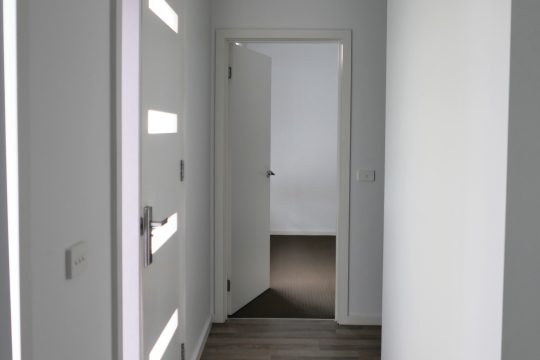By the time I graduated 3 years ago, I’ve already had an idea of what I wanted to be: a designer who could build stuff. This was my main motivation in learning how to design and code (not only javascript, but also to be able to build stuff from ground up, like Rails, so I could make prototypes and test my ideas).
Three years later, some of that have changed. I still wanted to build stuff and I’m still designing and coding, but I’ve valued teamwork a lot more than I did before. I haven’t yet built a product by myself, but I’ve worked on a couple with talented developers and it was a lot, lot of fun and usually a great learning experience. A lot of times though it feels like I’m a “jack of all trades, master of none”. I always read about mastering one thing, or developing strengths, and that trying to develop weaknesses is a waste of time. As someone who’s primarily a designer, I would view “coding” as a weakness, though I’m not so confident that I’m that great with visual design either. This leaves me feeling that I’m actually good at nothing, making me feel much more discouraged than when I just started to think about what the hell I’ve been doing.
This always made me question if I’m wasting too much time learning skills that I’ll never be good at anyway (I learned some Cordova in my last part-time job; we didn’t even finish that project so I only learned how to compile and use SQLite but that’s it. I’m actually not sure when I’d ever use that knowledge again). To quell this cognitive dissonance, I just tell myself that learning new things, no matter what they are, is good. I’ve attended JSConf Asia and felt inspired (to make stuff). I’ve attended UXHK and felt inspired (to spread good design thinking). But they haven’t really done much to convince me that I’m doing the right thing in building my career. I feel like I’m floating in between design, front-end, javascript, UI, UX, whathaveyou.
Recently though, a new job and a new project with a missing Product Manager, I’ve been forced to think about this new product we’re doing a LOT. In the beginning, it was just hard to design for something that I hadn’t yet fully understood: I didn’t know what the product’s goals were, what exactly we wanted to achieve after the MVP has been released. And even when the basic functionalities for this MVP has been laid out, I kept on thinking and thinking about our roadblocks and how we might overcome it. I’m supposed to be thinking about wireframes and flows and even branding, but I couldn’t help but brainstorm on what our new product needs so that it could work. The books I’ve been reading are related to design — but much less with just the visual design of things (i.e. UI), but more so on psychology and product development.
This made me go back to David Cole’s article on the web: Applied Discovery: Presentation Build from 2013. He’s a designer I admire a lot mainly because he seems to be the type of designer I want to be (a designer who codes). When I first read that article, I shared it everywhere. I shared it a lot. I just felt like it spoke to me on so many levels and made me feel like I still knew what I was doing. That hey, all the time I’ve spent trying to learn code instead of practicing more visual design wasn’t all for naught. And that all the roles I’ve taken on, and all that I’ve learned from past projects is movement towards the goal that I had from three years ago: to build stuff.
There’s a temptation, when your only domain is the interface, to look there to innovate…
This narrow view also threatens the ability to do our best work. Far too often, a designer is charged with designing a product that will never make sense when expressed in UI, and the feedback loops rarely move backwards to force the product to change in response to the interface. By owning both halves, each process can move in appropriate response to the other, ensuring harmony. This is also why I believe designers should code, but again, that’s another subject for another talk.
Here’s a question to ask yourself: if the project you were working on failed — it hit the market and nobody wanted it, nobody used it — would you blame yourself? If the answer is no, then I think you don’t have enough authority. If you’re blaming others for the outcomes in your work, it’s time to demand more.
Maybe it’s no longer enough for me to just be thinking in wireframes or design or front-end. Maybe it’s time to get dirty with designing what a product will be and even have more responsibilities tied to its success and failure. Maybe I have big ideas to contribute to product development or design, in conceptualization and implementation.
There have been some projects where my ideas were “advice” — not enough authority to push through with the released product because again, my role was mainly just on the UI and front-end side of things. Perhaps now is a good time to start doing more, as product design is just another part of what I need to build stuff. I just hadn’t really thought that hey, maybe this is also a path that I could take.
We’ll see.








Leave a Reply